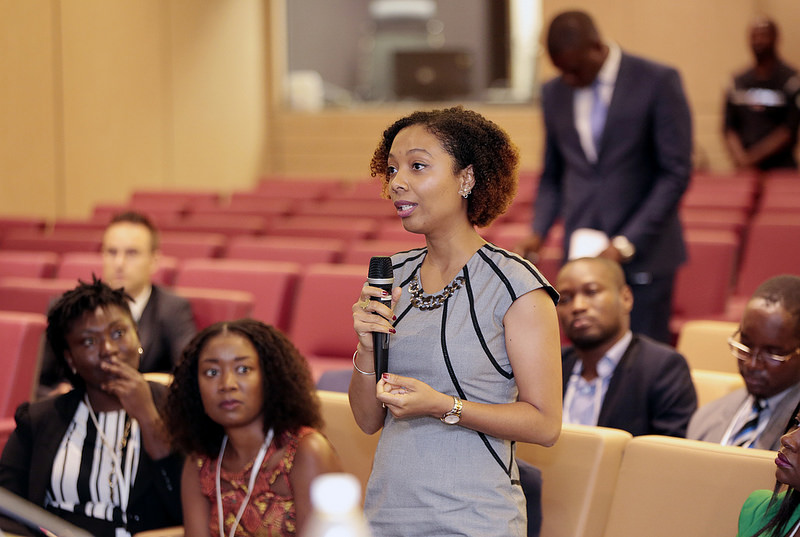From Sudan to South Africa, many African countries have embraced austerity measures, giving a growing number of citizens the feeling they are being left behind, and provoking a crisis of representation and legitimacy. Demanding budget cuts, which in practice have a direct impact on public services, is not only the bedrock of populism, authoritarianism or social unrest. It is also a frontal attack on women’s rights. Because women tend to be more dependent on public social services, which have the capacity to shift the unpaid care burden that falls disproportionately on their shoulders. Cleaning, cooking and looking after dependent family members – children, elderly people and people with disabilities – are still ‘women’s affairs’. In Morocco and Tunisia, for example, women report doing five times as much unpaid care and domestic work as men.

The devastating consequences of underinvestment in health and other social services have become tragically clear with the ongoing Ebola epidemic in sub-Saharan Africa. According to United Nations Women, the consequences are worse for poor women, who experience major difficulties in accessing healthcare services, particularly in rural areas. Across Africa, just 35% of women of reproductive age in the lowest wealth quintiles use contraception, versus 52% in the highest wealth quintile.
Women and girls are also the most impacted when countries offer poor basic facilities, especially in developing countries. In sub-Saharan Africa, where over two-thirds of the population lacks access to domestic tap water, women and girls are the main providers of the household water supply and sanitation. In Cote d’Ivoire, for example, 90% of the primary collectors of water are women. Girls are left to fetch water and firewood, as their brothers go to school. This disproportionate situation means that women have fewer opportunities for education, training and work, making their economic empowerment very difficult.
Even when women manage to work, they are often trapped in low-paid, poor-quality jobs, frequently in the informal sector. Many of them lack social labour protection and decent working conditions, with consequences for current and future income (less rights to pensions, etc), adding to the already unacceptable gender pay gap of 23% between women and men. As a result, in most countries, women are less likely than men to receive a pension in their old age. In Burundi, for example, just 2% of women above statutory pension age are in receipt of a pension, compared to 7% of men.
Women´s access to social protection, gender-responsive quality public services and infrastructure is now a priority of the international community. It is actually the main topic of the United Nations (UN) 2019 Commission on the Status of Women, which will take place in New York from 11 to 22 March. This meeting is not just a bureaucratic one like the others; its conclusions will define the gender equality policies that countries aim to implement in years to come.
It is urgent to reform the global international fiscal system to put an end to all tax avoidance mechanisms. When corporations do not pay their fair share of taxes, there is less money to invest in public services, sustainable infrastructure and social protection, which are the key drivers of gender equality. Annual tax revenue lost by developing countries due to trade mispricing alone is estimated at between US$98 billion and US$106 billion, nearly US$20 billion more than the annual capital costs needed to achieve universal water and sanitation coverage.
We also want to highlight the essential and primary role of the state as the guarantor of the human rights of all women and girls. Whenever private companies have wanted to take over basic public services and infrastructure, such as water and sanitation, or health and education facilities, it has always resulted in deterioration in quality, especially for the most vulnerable. A human rights-based approach cannot be guaranteed within a ‘for-profit” system.
In these troubled times when xenophobia is exploited by many unscrupulous political leaders, we also call on the representatives to commit to policies addressed to all women, including women migrants, refugees and asylum-seekers. It is especially worrying that some European countries are trying to limit migrants’ access to welfare benefits.
Without voluntary policies such as these, it will be impossible for most of the countries to meet their renewed commitment to gender equality and human rights through the 2030 agenda for sustainable development. Women will still struggle to remain in the labour market and secure social protection entitlements through employment. They will not find time for rest, leisure or political participation either. Universal, rights-based quality public services are a feminist issue.
We also want to highlight the essential and primary role of the state as the guarantor of the human rights of all women and girls. Whenever private companies have wanted to take over basic public services and infrastructure, such as water and sanitation, or health and education facilities, it has always resulted in deterioration in quality, especially for the most vulnerable. A human rights-based approach cannot be guaranteed within a ‘for-profit” system.
In these troubled times when xenophobia is exploited by many unscrupulous political leaders, we also call on the representatives to commit to policies addressed to all women, including women migrants, refugees and asylum-seekers. It is especially worrying that some European countries are trying to limit migrants’ access to welfare benefits.
Without voluntary policies such as these, it will be impossible for most of the countries to meet their renewed commitment to gender equality and human rights through the 2030 agenda for sustainable development. Women will still struggle to remain in the labour market and secure social protection entitlements through employment. They will not find time for rest, leisure or political participation either. Universal, rights-based quality public services are a feminist issue.

